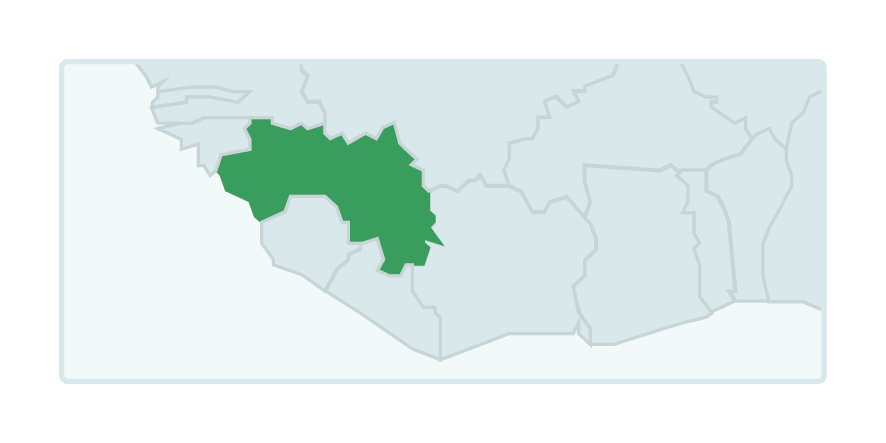In Guinea, almost 60 % of the population is under 24. Young men and women’s civil participation is restricted by short-term and structural factors. The labour market is characterised by a significant lack of job security. Young people are particularly affected by this, especially young people living in isolated rural areas and, more broadly, young women. Difficulties accessing basic services such as health and education, and a shortage of sustainable economic opportunities for young people are generating migration, particularly among rural people.
Apart from economic realities, active contribution of young people to environmental issues is limited by several factors: youth organisations that are not sufficiently structured or operational, and a low level of appropriate technical skills. The contraction of space afforded to young people in political dialogue is also an obstacle. Consequently, due to a lack of resources and optimal technical capacities to fully participate, young people are not recognised as legitimate stakeholders and remain under-estimated in decision-making and consultative bodies dealing with environmental issues at national, regional and municipal level.
To lay the foundations for overall integration of young people, since the end of 2022, GRET has been conducting an exploratory study in Forest Guinea with a view to developing new ways of supporting young Guineans. The study raised a number of issues around civil participation and ecological transition, and defined a number of actions as part of a pilot project funded by AFD through the Jade (Young people as stakeholders in the future) multi-country programme.
Led by GRET and the CSO Aguide, the Jecoci project intends to strengthen young people’s participation and their power to take action for the environment, notably in the Lola and N’zérékoré prefectures. By involving young people in all project activities, the Jecoci project aims to change the role given to young people in the political sphere and enhance their civil participation in their territories. The project will be conducted over an 18-month period from May 2024 to October 2025.
Since 2020, GRET and its partners have been exploring new ways to support young people through the JADE programme (Young people as stakeholders in the future). This initiative aims to promote a comprehensive approach encompassing the economic, professional, social, civic, environmental and climate aspects of youth integration. The idea is to strengthen young people’s power to take action, both individually and collectively, so that they can become stakeholders in their own development and that of their communities.
JADE benefits from the support of Agence française de développement and is being rolled out in 9 countries: Cambodia, Congo, Guinea, Haiti, Madagascar, Mauritania, Myanmar, Senegal and Vietnam.
